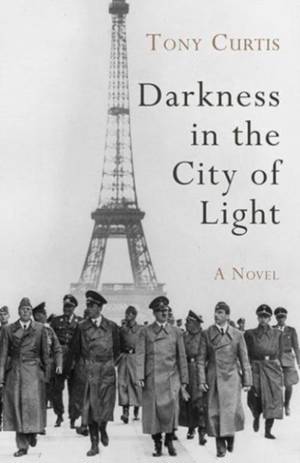
- Afhalen na 1 uur in een winkel met voorraad
- Gratis thuislevering in België vanaf € 30
- Ruim aanbod met 7 miljoen producten
- Afhalen na 1 uur in een winkel met voorraad
- Gratis thuislevering in België vanaf € 30
- Ruim aanbod met 7 miljoen producten
Omschrijving
Paris is an extraordinary city, never more so than during the German occupation, with all the tensions, accommodations, resistances and paradoxes which that entailed. Civilised German officers engage in Parisian culture while their colleagues torture and kill in the city; French citizens measure what needs to be sacrificed in order to survive, or to be free. Morality is more sharply in focus than ever, and more expendable.
Against this background, and at the centre of the novel, moves Marcel Petiot, doctor, collaborator or resistance fighter, psychopath and serial murderer. He is the embodiment of the chaos and brutality of war, of the evil and inhumanity of dictatorship. As Curtis's novel progresses and awareness of Petiot and his actions grows, so too does his presence in the book. With the liberation of Paris, Petiot is at its centre, forced into new roles and new conspiracies to avoid trial and the guillotine. Truth and fiction blur, fundamentally, plausibility is tested, answers are few and questions multiply. Who was Petiot? Perhaps he himself did not know. Certainly the people he killed did not.
Stretching backwards and forwards within the twentieth century, and with a cast including Picasso, Braque, Sartre, Hemingway and Lee Miller, this remarkable multi-form novella combines fiction, journals, poetry and images to investigate what war can let loose, and how evil can dominate a man. Its collage technique reflects the continual shifts of life in the city of light.
Specificaties
Betrokkenen
- Auteur(s):
- Uitgeverij:
Inhoud
- Aantal bladzijden:
- 176
- Taal:
- Engels
Eigenschappen
- Productcode (EAN):
- 9781781726136
- Verschijningsdatum:
- 31/01/2022
- Uitvoering:
- Paperback
- Formaat:
- Trade paperback (VS)
- Afmetingen:
- 129 mm x 199 mm
- Gewicht:
- 336 g

Alleen bij Standaard Boekhandel
Beoordelingen
We publiceren alleen reviews die voldoen aan de voorwaarden voor reviews. Bekijk onze voorwaarden voor reviews.











